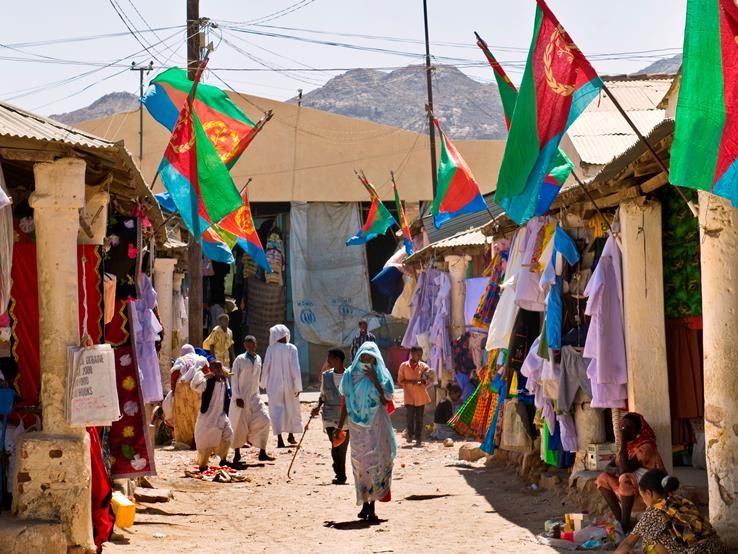- Stay Connected
WHO FLEES AFRICA’S NORTH KOREA FOR SUDAN?

Every day all over the world, people cross borders in search of a better life. But you know things are truly bad back home when you need to seek refuge in Sudan. That’s precisely what more than 125,530 people have done — and the United Nations High Commissioner for Refugees (UNHCR) says this number is likely to rise in 2016.
They are fleeing the iron rule of Eritrea’s President Isaias Afwerki and his thick catalog of human rights violations, including (but not limited to) forced and indefinite military conscription, arbitrary arrests and torture. In fact, the autocratic East African country leads the world in only two grim categories: media censorship and child labor.
It’s no wonder why so many young Eritreans (most refugees are age 18 to 24) try their luck in neighboring Ethiopia, which currently hosts more than 131,660 Eritrean refugees. According to UNHCR, 40,000 arrived in 2015, almost twice as many as the year before. Ethiopia is politically stable and has close cultural and historical ties to Eritrea, so refugees are well treated. Many, however, go to Sudan, where they can cross to Libya and take the dangerous passage to Europe.
“There is no future for anyone in Eritrea,” says Khalid, a 17-year-old from Asmara, Eritrea’s capital, who reached the tiny Italian island of Lampedusa after a 20-hour journey at sea from Libya. His older brother managed to get asylum in Switzerland, so that’s where he hopes to go next.Crossing the Mediterranean is a gamble with one’s life, but even Eritreans who stay in Sudan are not guaranteed their safety. Refugees often fall victim to smuggling, trafficking and rape. Human Rights Watch has reported cases of refugees being forcibly deported from Sudan back to the brutal regime from which they were fleeing.
When faced with a refugee crisis, a common response from developed nations is to try to improve refugees’ living conditions in the country of origin through diplomatic threats, aid packages or both. Unfortunately, neither of these strategies is likely to succeed in Eritrea, says Nicole Hirt, associate researcher at the GIGA Institute of African Affairs in Hamburg, Germany. The EU recently gave a $326 million aid package directly to Afwerki’s coffers with the hope of curbing the refugee influx. But Hirt believes “this will definitely not help. Instead, it will just contribute to extend the militarization of society.” Meanwhile, the government is actually benefiting from the growing diaspora through remittances and a 2 percent “diaspora tax” enforced by Eritrean embassies to citizens living abroad. (The government of Eritrea did not reply to requests for comment.)
For now, Eritrea continues to grow so hostile to its own citizens that it can’t even hold onto its national soccer team. After the World Cup Qualifier in 2015, 10 of its players asked for asylum in Botswana — the fourth time such mass defection has happened.Source :OZY
